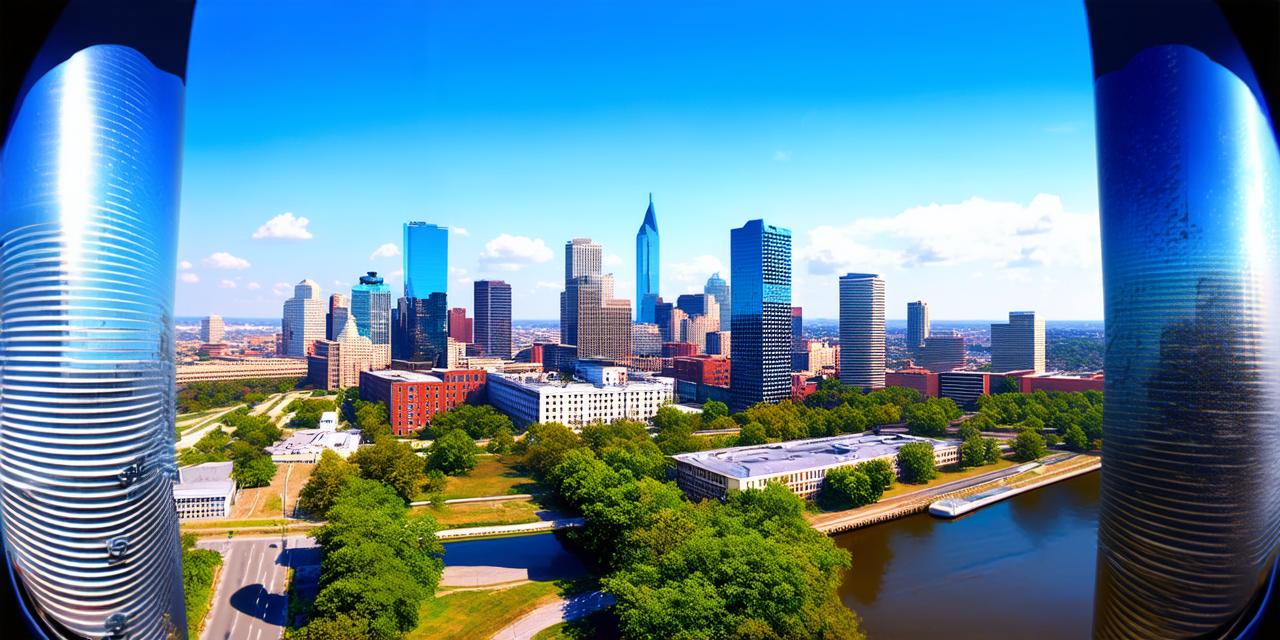Virtual reality (VR) is an emerging technology that has the potential to revolutionize many industries, from gaming and entertainment to healthcare and education. As a VR developer, you may be curious about exploring VR experiences in real life, especially if you’re based in Richmond, VA.
Introduction: Why Virtual Reality Matters in Richmond, VA
Richmond, VA is a thriving city with a rich cultural heritage and a vibrant tech scene. With its proximity to Washington D.C., it has become a hub for innovation and entrepreneurship. One of the emerging technologies that have caught the attention of many businesses in Richmond is virtual reality (VR). VR experiences offer immersive, interactive, and engaging ways for people to interact with digital content and each other.
In this guide, we will explore some of the most exciting VR experiences available in Richmond and provide insights into how you can leverage them for your own projects. We will also discuss some of the challenges and opportunities associated with VR development in Richmond and beyond. So, let’s get started!
Exploring Virtual Reality Experiences in Richmond, VA
There are many virtual reality experiences available in Richmond that can inspire your own projects. Here are some examples:
1. The Science Museum of Virginia’s VR Exhibit
The Science Museum of Virginia has a VR exhibit called “VR Adventures” that offers visitors the chance to explore different worlds and environments through immersive virtual reality experiences. The exhibit features several VR stations, each with its own unique experience. Visitors can explore a virtual jungle, dive into the ocean depths, or even ride a roller coaster.
As a VR developer, you may be interested in learning from this exhibit and gaining inspiration for your own projects. You could also collaborate with the museum to create new VR experiences that align with their mission of promoting science and technology education.
2. The Virginia Aquarium & Marine Science Center’s VR Experience
The Virginia Aquarium & Marine Science Center has a VR experience called “Ocean Realms” that takes visitors on an underwater adventure through the coral reefs, kelp forests, and deep-sea trenches. Visitors can explore different marine ecosystems and interact with various sea creatures in a realistic and immersive way.
As a VR developer, you could collaborate with the aquarium to create new VR experiences that showcase the wonders of the ocean and promote environmental awareness. You could also leverage the latest advancements in VR technology to create more interactive and engaging experiences for visitors.
3. The Virginia Museum of Fine Arts’ VR Exhibit
The Virginia Museum of Fine Arts has a VR exhibit called “Infinity Room” that offers visitors the chance to explore a virtual reality environment created by artist Yayoi Kusama. The exhibit features an infinite room with mirrored walls and polka dots, creating an immersive and psychedelic experience.
As a VR developer, you could collaborate with artists and designers to create new VR experiences that blend art and technology. You could also explore the potential of VR in storytelling and experiential marketing.
4. The Richmond International Film Festival’s VR Screenings
The Richmond International Film Festival has a dedicated section for virtual reality screenings, showcasing some of the latest VR films and experiences from around the world. As a VR developer, you could submit your own VR projects to be screened at the festival and gain exposure to a wider audience. You could also attend the festival to network with other VR professionals and learn about the latest trends and technologies in the field.
Challenges and Opportunities of Virtual Reality Development in Richmond, VA
While virtual reality experiences offer many exciting opportunities for businesses and developers, they also come with several challenges. Here are some of the key challenges and opportunities associated with VR development in Richmond and beyond:
1. Cost and Accessibility
One of the main challenges of VR development is cost. Developing high-quality VR experiences can be expensive, especially if you need specialized equipment and software. Additionally, not everyone has access to VR technology, which can limit the reach and impact of your projects.
As a VR developer, you may need to find creative ways to overcome these challenges. For example, you could leverage cloud-based VR solutions that reduce the upfront costs and make it easier for people to access VR content from anywhere. You could also explore partnerships with businesses and organizations that can help offset the costs of development and distribution.
2. User Experience and Interaction
Another challenge of VR development is creating engaging and intuitive user experiences. VR technology can be complex, and users may struggle to navigate and interact with digital content in a natural way.
As a VR developer, you need to focus on designing experiences that are intuitive, immersive, and enjoyable for the user. To achieve this, you could leverage best practices from user experience (UX) design, such as creating clear and concise interfaces, using visual cues and feedback, and testing your designs with real users. You could also explore new VR interaction paradigms, such as gesture-based or voice-activated controls, to make your experiences more natural and intuitive.
